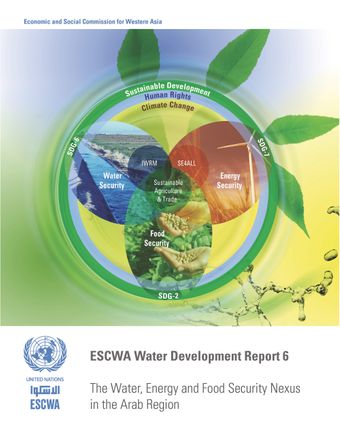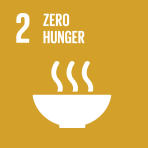The nexus from a shared-basin perspective

- Author: United Nations Economic and Social Commission for Western Asia
- Main Title: ESCWA Water Development Report 6 , pp 31-52
- Publication Date: March 2016
- DOI: https://doi.org/10.18356/a6d49111-en
- Language: English
The management of shared water resources becomes even more complex when considering the relationship between water, energy and food security as the system in which the nexus is framed. Most prominent are interative inter-State relationships and the likelihood of differences in development priorities between upstream and downstream riparian countries. Grounding the nexus in a human rights approach within the context of shared water basins can facilitate the prioritization process during which a balance needs to be found and trade-offs need to be considered between water, energy and food security aims in view of complexities related to geopolitics, sovereignty and security within a shared basin. This chapter illustrates the importance of considering the WEF security nexus when pursuing cooperation with regard to shared water resources in the Arab region as a means to support the achievement of common goals. Two shared surface water basins, the Euphrates river basin and the Nile river basin, and two shared groundwater basins, the Saq-Ram Aquifer System (West), which is often called the Disi Aquifer, and the North-Western Sahara Aquifer System (NWSAS), are examined in order to identify how a nexus perspective can further crosssectoral understanding of shared water resources with a view to ensuring WEF security for all.
© United Nations
ISBN (PDF):
9789210576345
Book DOI:
https://doi.org/10.18356/48da6f2c-en
Related Subject(s):
Natural Resources Water and Energy
Sustainable Development Goals:
-
From This Site
/content/books/9789210576345c005dcterms_title,dcterms_subject,pub_keyword-contentType:Journal -contentType:Contributor -contentType:Concept -contentType:Institution105
/content/books/9789210576345c005
dcterms_title,dcterms_subject,pub_keyword
-contentType:Journal -contentType:Contributor -contentType:Concept -contentType:Institution
10
5


